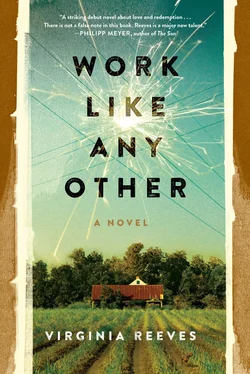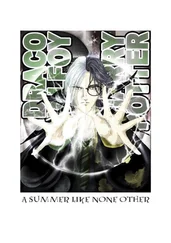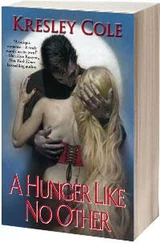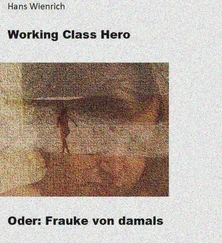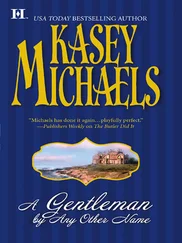I found Dean in the mess. “Keep going to the library. Even though I won’t be there.”
“Hell, Books. It won’t be as good, but I’ll give it a shot.”
That was as close as I came to saying good-bye to a friend within those walls.
I sent one letter home, telling Marie the date of my release. Please collect me from the prison on April 10. I’ll be coming out the front doors around 3:00 p.m. If that letter went unanswered like all the others and no one came, I was sure I would never go back to the land. I would go to the ocean, and I would find myself a lighthouse.
But a farm truck was in the parking lot, and I knew it was there for me. A rifle and fishing rod hung in the rear window, and they kept me from seeing the head of the driver.
“Martin!” I heard from behind me, Taylor’s rough voice. “I got a send-off for you.”
Maggie was at his side, her great nose to the sky, trying to find what she should sniff out.
“She’s tired, and I don’t think she’s got another litter in her. Makes her no good to me. Figure you could take her to pasture.” Taylor put a ratty length of rope in my hand, its other end tied to Maggie’s collar. He’d never part with one of his leather leads.
“Thank you, sir.” We shook hands.
“Best not see you back here.”
“Yes, sir.”
He tugged on one of Maggie’s ears, then gave her a swat on the butt. “Go on, old mutt.”
She looked back only once at her old master. “Come on, girl.” I was grateful for the distraction, for something I could focus on rather than the hope of my real wife, there in the dirt lot of Kilby.
When we were a few yards away, the driver’s door opened, and Marie did not step out.
I stopped, and Maggie tensed at my side. Is this who I’m looking for? her body asked. Do you need me to point?
“Wilson.” His hair was short, and a few more lines were round his eyes, but his face didn’t look much older than it had the last time I’d seen him. He walked toward me, coming round the back of the truck, and I saw his left arm then — gone from the elbow down.
My right arm hung tucked in its bend against my body, but my hand was there, my forearm, and I made good use of them. I still do.
Maggie growled.
“No. Sit.”
“Got yourself a dog, Ross?” Wilson held out his right hand, and I shook it just as I had Taylor’s a moment before. “Problem with your arm, there?”
“Shoulder injury. I don’t have full use of it anymore.”
Wilson raised the stump of his left arm. “Full use of what I have left.”
“What happened?”
“Plenty of time for that. There’s a meal cooking at home. Best get you back.”
Maggie jumped in the truck bed with little prompting, and I tied her rope to one of the slats to keep her from diving out. I’d never ridden in a vehicle with Wilson. I’d never seen him drive, but he performed it with ease, his left limb propped against the wheel when his right needed to shift.
“Did Marie send you?”
Wilson eyed me, an old look I knew well. “When’s the last time you heard from Marie, Ross?”
“Nine years ago.”
“There’s time for that, too. Kilby hand out pets to everyone they let go?”
“I worked the dogs.”
“You a dog boy, then? Chasing down escapees?”
I nodded.
“That was a wanted job at the mine. Kept you aboveground, got you out in the woods. What’d it keep you out of?”
“The dairy.”
“Dairy sounds good to me.”
There are days the dairy sounds good to me, too. Days I picture myself back there even though I know it’s nowhere I belong.
The truck rattled down the dirt lane to the highway, and there were the oaks. Kilby sat behind us, watching our dust through its many eyes.
“Where’s Marie?”
“Mobile.”
I didn’t know how that could be true. I had always — only — seen her on her father’s land. Marie moving us to that place set me to building those transformers and stringing those lines along the cornfield and electrifying that thresher. George Haskin wouldn’t have had anything to explore if we hadn’t been there. The time I’d served in Kilby grew from my time on that land, and there would have been no time on that land without Marie’s insistence that we move there.
Electrical work could be come by in Mobile. Why not take us there directly?
“Mobile?”
“Moa’s making you a fine meal, Ross. All the trimmings.”
“Why is Marie in Mobile?”
Wilson had the stump of his arm up on the door now, alongside the open window. His right hand was scarred, raised strips thatching the skin, some pink, some black. “You were expecting her here? Thought she’d be waiting?”
I don’t know if I thought that. “I didn’t expect her to be in Mobile.”
“There’s plenty you didn’t expect, Ross.”
I thought he was referencing George Haskin and our sentences, but I know now he was talking about our new lives, the lives that were starting there in that truck.
The highway went on before us. Spring had come, the oaks bright with their new leaves. Hollies dotted green in the lower brush, some sprouting high enough to rival the trees. The road was smooth and newly painted, and it made me think of Ed’s chair. We passed into a stand of shortleaf pine, with its bunchy needles and clustered cones. The cones grow opposite one another on the branch, a reflection — that’s how you can tell the tree apart from other pines.
Maggie held her head in the air, nose tipped high, ears flapping.
“What’s Marie doing in Mobile?”
“Teaching.”
“And Gerald? Where’s he?”
“Tuscaloosa.”
“Going to the university?”
“That’s right.”
Gerald made sense there, but Marie was a mystery I couldn’t solve — not the young version of her or the grown one that might have come to see me in the infirmary. Nurse Hannah had never confirmed or denied that shifty presence.
“Did Marie visit the prison?”
“We got notice of you being laid up. Course Moa got no word about this.” Wilson lifted the stump of his left arm. “They didn’t even tell her where they sent me, probably had no record of it themselves. Just a list of numbers, you see, taking our shifts. You know their favorite saying about leased men? ‘One dies, get another.’ ” Wilson thumped his damaged arm against the door. “See, I’m told I’m lucky, Ross. Would’ve been dead if they hadn’t chopped this off and cauterized what was left. You ever smell flesh burning?”
“Not up close.”
“From a distance, then.”
“There’s a smell when they use the chair at Kilby.”
“The chair!” Wilson laughed. “They give you dogs when you get out. Infirmaries when you’re hurt. Books to read. Even your executions get special treatment. At Sloss, it’s either the mine or a guard that delivers that sentence.” He shook his head and smiled as if it were the funniest thing he’d heard. “A chair! You get to consult on that, Ross? Lend your electrical expertise?”
“No.”
“That’s a shame.”
I didn’t tell him how close I’d been to its builder.
We eventually left the highway for a county road, the packed clay spinning into red dust behind us. The trees on the right had yielded to long stretches of peanuts just starting to spread. Small plots of spring crops were amongst them — lettuces and onions. It sent me back to the mess hall, some fellow from the fields talking about onion bulbs, yellow and red and white. “We’ve got two onion seasons,” I heard him say. “You got to put the bulbs in the ground early February, pull that crop early June, then you’re in with your winter bulbs late September.”
The poles alongside us held the line I had tapped. They turned about two miles up to run along that far edge of the field.
Читать дальше
